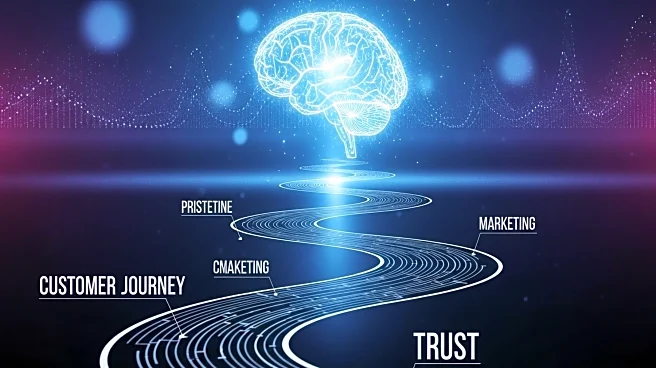What's Happening?
The marketing landscape is undergoing significant changes with the integration of artificial intelligence (AI) in shaping customer journeys. According to recent research from The Drum and Usercentrics, AI is increasingly influencing how marketers use consumer data for personalization. Despite 79% of Chief Marketing Officers (CMOs) expressing comfort with their use of consumer data to power AI-driven personalization, there is a notable trust gap, as 59% of consumers remain skeptical. This research introduces the concept of the 'ninth P of marketing,' which aims to bridge this trust gap and turn trust into a powerful growth driver for brands.
Why It's Important?
The integration of AI in marketing is crucial as it offers the potential to enhance personalization and customer experience. However, the trust gap between marketers and consumers poses a challenge that could impact brand loyalty and consumer engagement. Bridging this gap is essential for marketers to maintain control and relevance in a rapidly evolving digital landscape. The ability to effectively manage consumer trust can lead to increased brand growth and customer retention, making it a key focus for marketing strategies moving forward.
What's Next?
Marketers are expected to focus on strategies that enhance consumer trust and transparency in data usage. This may involve adopting new technologies and practices that prioritize consumer consent and data protection. As AI continues to evolve, marketers will need to adapt their strategies to ensure they remain in control and effectively leverage AI for personalization while maintaining consumer trust.
Beyond the Headlines
The ethical implications of AI in marketing are significant, as they involve balancing personalization with privacy concerns. Marketers must navigate these challenges to ensure ethical practices that respect consumer rights and foster trust. Long-term, this could lead to a shift in how brands interact with consumers, emphasizing transparency and ethical data usage.









